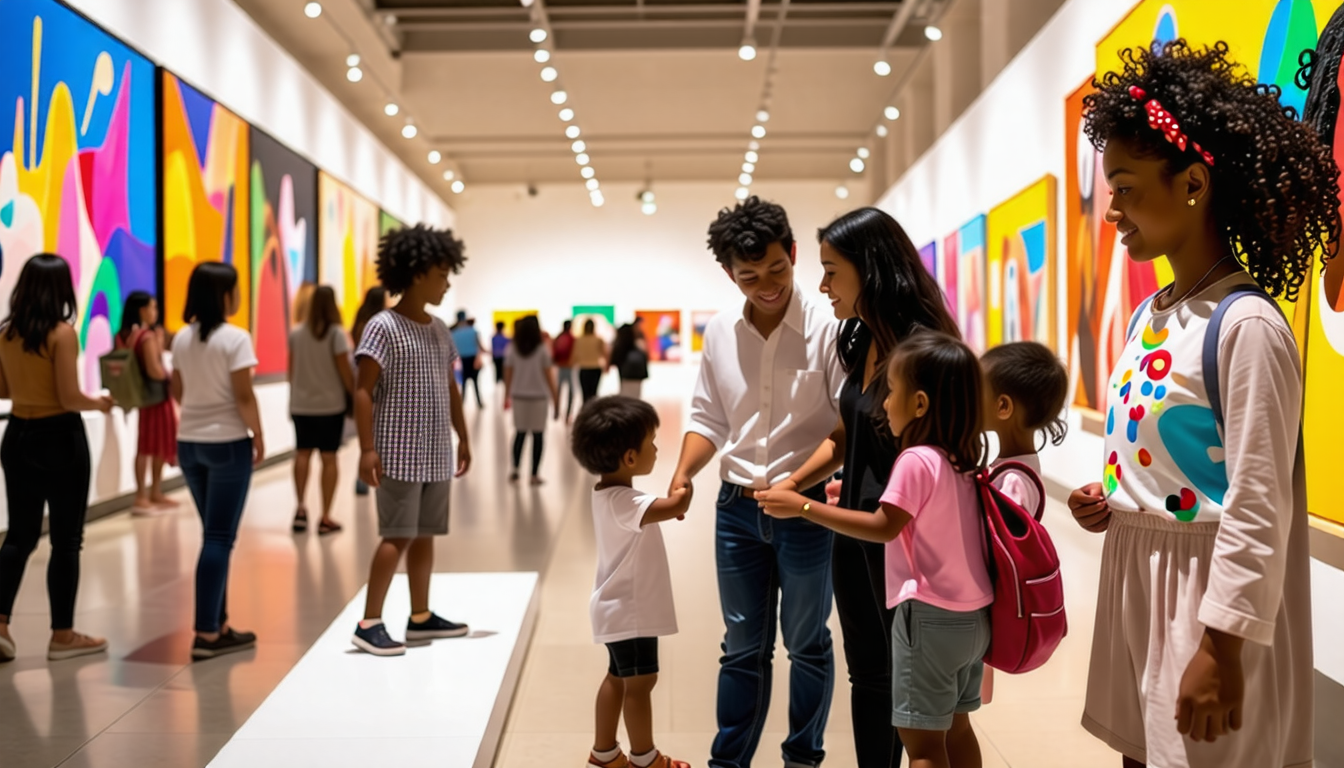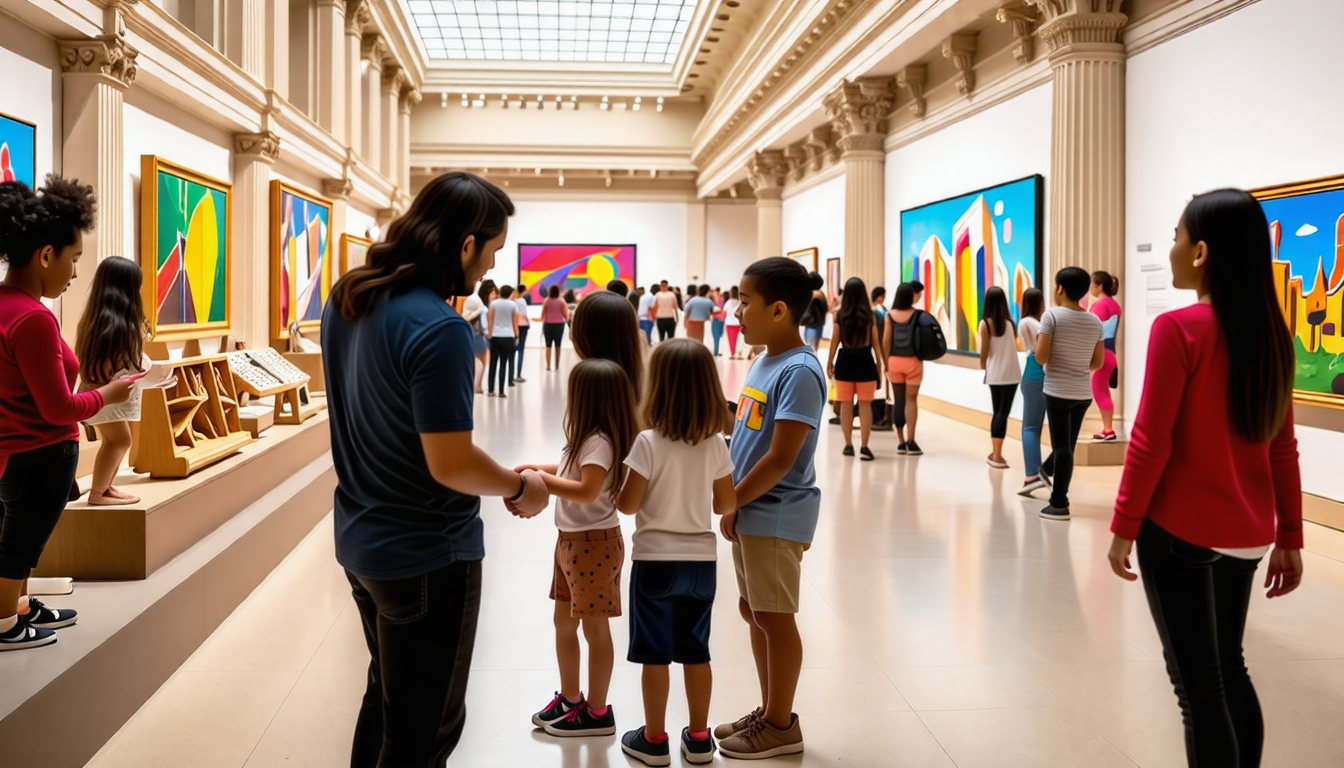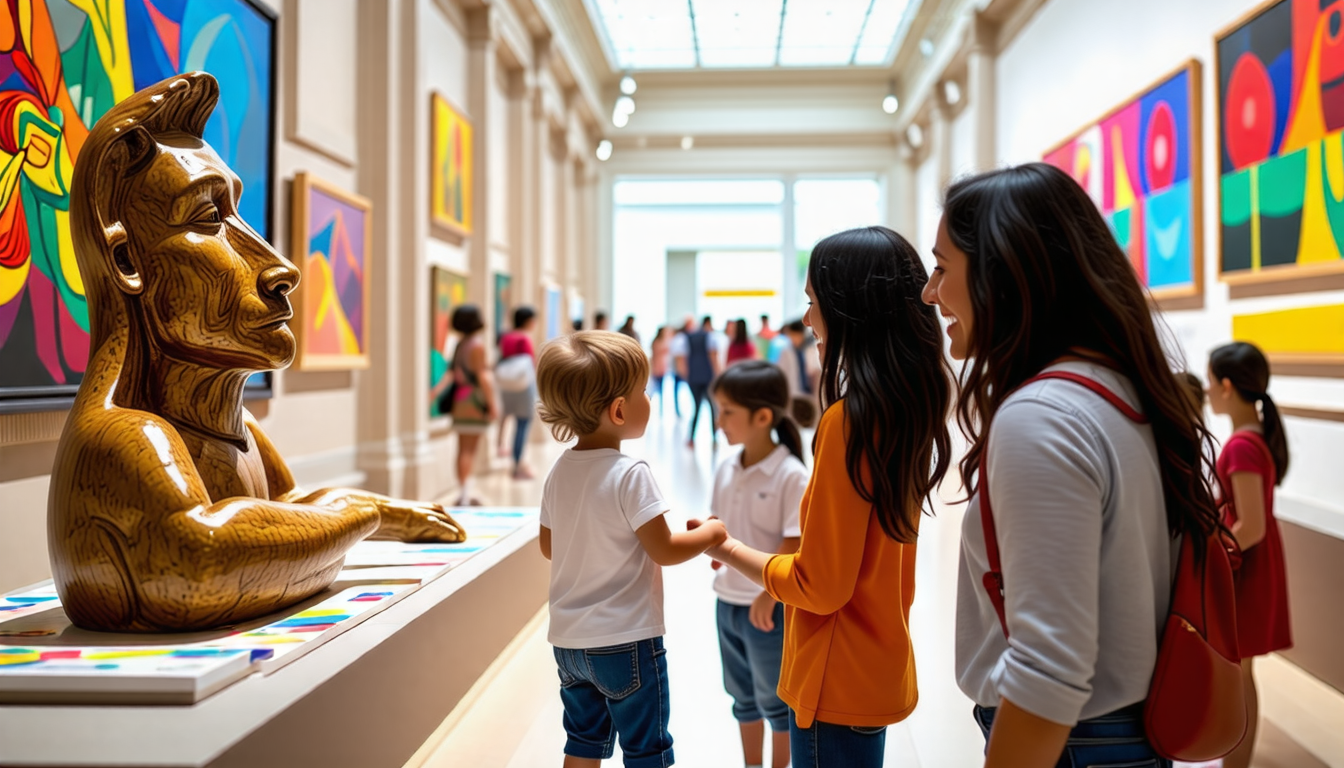|
IN BRIEF
|
In today’s fast-paced world, family bonding can sometimes take a backseat, but cultural outings serve as a delightful remedy. These excursions not only create cherished memories but also foster a deeper understanding of diverse cultures. By immersing children in varying traditions and perspectives, families can cultivate a strong sense of identity and self-esteem among the younger generation. Engaging in cultural activities encourages children to embrace their uniqueness while nurturing their creativity and curiosity. Moreover, these experiences enhance educational growth, enriching their knowledge beyond the classroom. From museums to cultural festivals, every outing becomes an opportunity to spark joy, ignite discussion, and strengthen family bonds, all while celebrating the kaleidoscope of life’s cultural diversity. Embracing these moments is crucial for holistic development and shared family interactions.

Cultural outings are not only a delightful escape from daily routines, but they also serve as powerful experiences that enrich family dynamics and contribute significantly to children’s growth. These outings foster a sense of togetherness, promote learning, and cultivate appreciation for the diverse world surrounding us. Through interactive visits to museums, art galleries, theaters, and cultural festivals, families can enhance their bonds while exposing their children to a broader spectrum of cultural knowledge.
Fostering Family Bonds
Engaging in cultural outings can deepen emotional connections among family members. As families share experiences outside the home, they create lasting memories that forge stronger ties. Whether it’s admiring a painting at a local gallery or participating in a lively dance at a community festival, these joint experiences become integral parts of family narratives. Each outing has the potential to spark rich conversations, allowing family members to express their thoughts and feelings while reflecting on what they have witnessed.
Furthermore, these outings encourage collaboration and teamwork, as families navigate events together. When children observe their parents enthusiastically engaging in new cultures, they feel more encouraged to participate and express themselves. This shared enthusiasm fosters a climate of openness that empowers each family member to contribute to discussions and activities.
Enhancing Education
Cultural outings serve as informal educational platforms, significantly boosting a child’s learning experience. Exposing children to diverse cultures and historical narratives enhances their understanding of the world, supplementing what they learn in school. Visiting a science museum or a cultural fair may introduce them to subjects like history, art, and science in an engaging manner that textbooks often fail to provide.
Moreover, these experiences can ignite a passion for lifelong learning. When children encounter different artistic expressions or historical contexts within community settings, they develop curiosity and a desire to explore more about the subjects that resonate with them. This enriched learning environment cultivates critical thinking and encourages children to question, analyze, and draw connections, enhancing their overall educational experience.
Cultivating Creativity
Exposure to various cultural forms stimulates children’s creativity, allowing their imaginations to soar. Participating in artistic events or theatrical performances provides insights into different ways of thinking and expressing oneself. The combination of visual arts, music, and performances encourages children to see the world through diverse lenses and inspires them to create their own work.
When children participate in activities that challenge them to think outside the box—be it through traditional crafts or contemporary dance—they learn valuable skills in innovation. Cultural outings often include hands-on projects that allow young minds to explore various textures, colors, and materials, leading to increased engagement with the world where they can draw inspiration for their creative endeavors.
Building Cultural Awareness and Respect
One essential aspect of cultural outings is the education surrounding cultural awareness. As families explore different traditions, cuisines, and lifestyles, they cultivate a profound respect for diversity. This understanding is vital, particularly in today’s multicultural societies, where appreciation of various backgrounds fosters inclusive communities.
Furthermore, exposing children to different cultures helps them embrace their own unique identity. Engaging with diverse perspectives encourages young people to appreciate their heritage while also recognizing the richness of others. Such experiences promote empathy and respect, which are foundational for positive social interactions and success in diverse environments.
Strengthening Mental Well-being
Participating in cultural outings can also have remarkable effects on mental health and emotional well-being. Being immersed in cultural experiences often brings joy and excitement to family life. This shared sense of joy significantly contributes to reducing stress and enhancing mood.
Moreover, cultural outings encourage mindfulness—a practice that has gained traction for its numerous mental health benefits. As families engage in activities that require them to be present in the moment—like observing a performance or appreciating intricate artworks—they cultivate mindfulness skills. This mental focus can lead to increased resilience, allowing them to handle life’s pressures more effectively.
Creating Opportunities for Cultural Education
Attending cultural events opens doors for children to learn about their heritage and other cultures in a meaningful way. For multicultural families, these outings become effective platforms to share and impart traditions that might otherwise diminish with generations. By participating in cultural festivals or local heritage days, families can actively promote understanding and appreciation of their unique backgrounds.
This immersive cultural education serves not just to educate but also to embolden family values. As children gain insight into their ancestors’ tales, they learn the significance of those narratives, feeling a sense of pride and connection to a larger cultural heritage. These outings also allow families to practice traditions together, reinforcing the importance of maintaining connections across generations.
Encouraging Social Interaction
Cultural outings foster social skills by providing opportunities for families to engage with others in community settings. Interacting with people from various backgrounds teaches children about social norms and communication styles, enhancing their ability to navigate diverse social structures. Such outings often involve collaborative projects or group activities, which naturally encourage conversations and connections.
Moreover, these experiences promote the importance of community involvement. Families participating in cultural festivals can meet new friends, learn from others, and create a supportive network. Exposure to varying lifestyles and traditions equips young people with the tools needed to foster meaningful relationships, reflecting the essence of community spirit.
Supporting Local Economies and Communities
Choosing to participate in cultural outings promotes support for local economies and community artists. By attending exhibitions, performances, or festivals, families help sustain cultural initiatives that contribute significantly to their local neighborhoods. This aspect of cultural outings emphasizes the importance of community engagement as families witness firsthand the value of these cultural expressions.
Additionally, supporting local arts and cultural groups cultivates a sense of pride within the community, fostering connections among inhabitants. Such participation encourages families to instill values of support and appreciation for local talents and creates a ripple effect that elevates the entire community.
Creating Lasting Family Traditions
Cultural outings have the potential to become cherished family traditions. Repeated visits to local festivals, museums, or cultural events create a sense of anticipation and belonging among family members. These traditions, in turn, develop a shared identity that connects family members across generations.
As families solidify these traditions, they empower their children to feel invested in cultural activities. This heritage becomes a narrative passed down, making cultural outings a central aspect of family life. These memories not only enrich individual experiences but also forge an unbreakable bond that will be cherished for years to come.
Promoting Lifelong Cultural Engagement
By integrating cultural outings into family activities, parents lay the foundation for lifelong engagement with the arts and humanities. Children who grow up participating in cultural events are more likely to seek out similar experiences as they age. This lasting appreciation for culture enhances personal growth and understanding throughout their lives.
Over time, these experiences transform into knowledge and passion that can guide children toward informed decisions as adults. Whether they pursue the arts, engage in social causes, or share their experiences with future generations, the exposure gained through family cultural outings undeniably shapes their worldview.
For those interested in nurturing children’s cognitive growth, detailed approaches can be found here: Nurturing Cognitive Growth.
Engaging in cultural outings offers families a multitude of benefits that extend beyond mere entertainment. These excursions provide an opportunity for children to embrace their uniqueness while nurturing a sense of respect and appreciation for diverse cultures. Not only do such experiences enhance educational growth, but they also spark creativity and imagination in young minds. Participating in cultural activities fosters social connections, ultimately helping to build a strong family bond. These traditions serve to boost self-esteem, offering kids a profound sense of identity and belonging. Beyond personal growth, cultural outings also emphasize the importance of understanding and celebrating diversity, paving the way for a more inclusive society.


